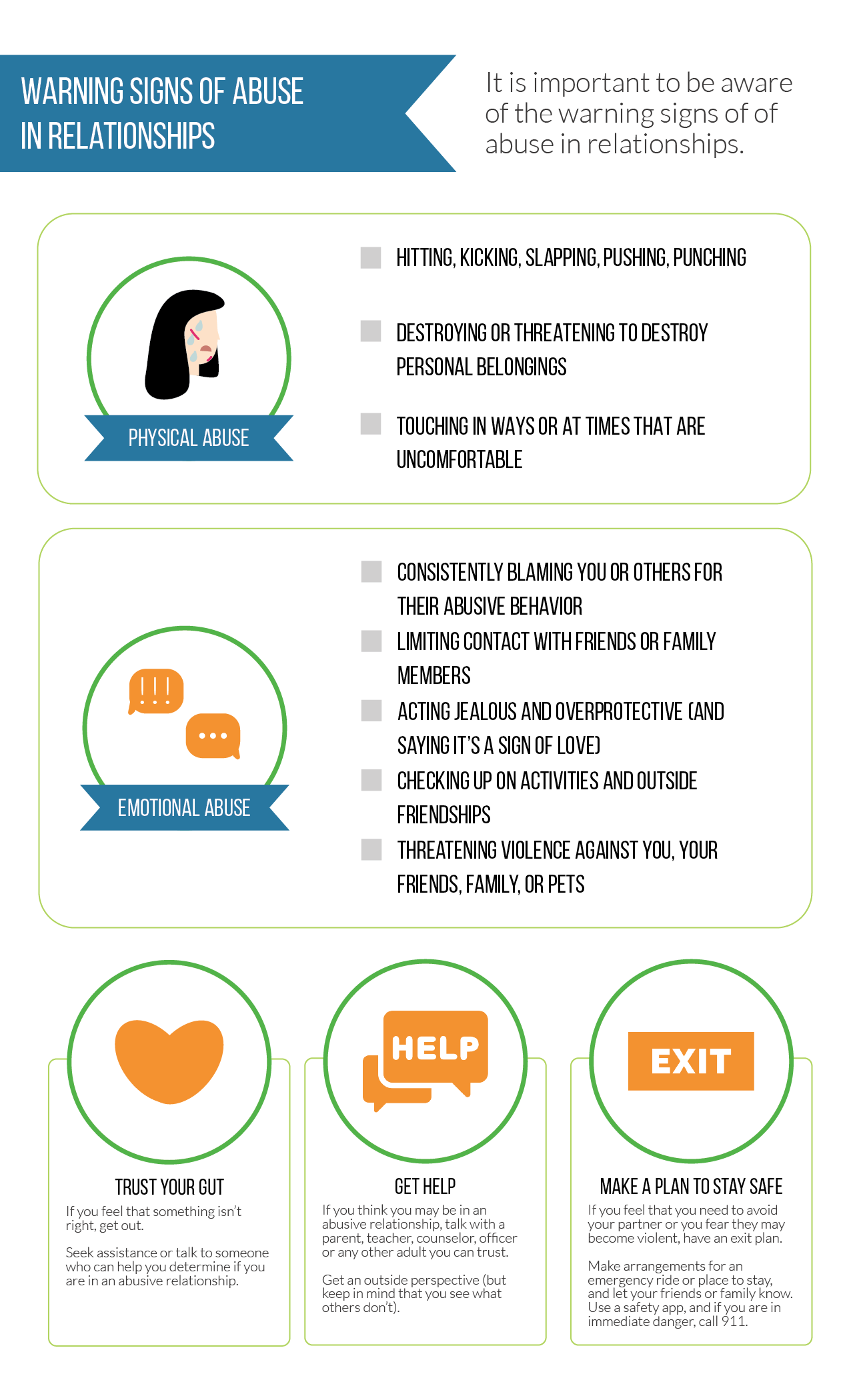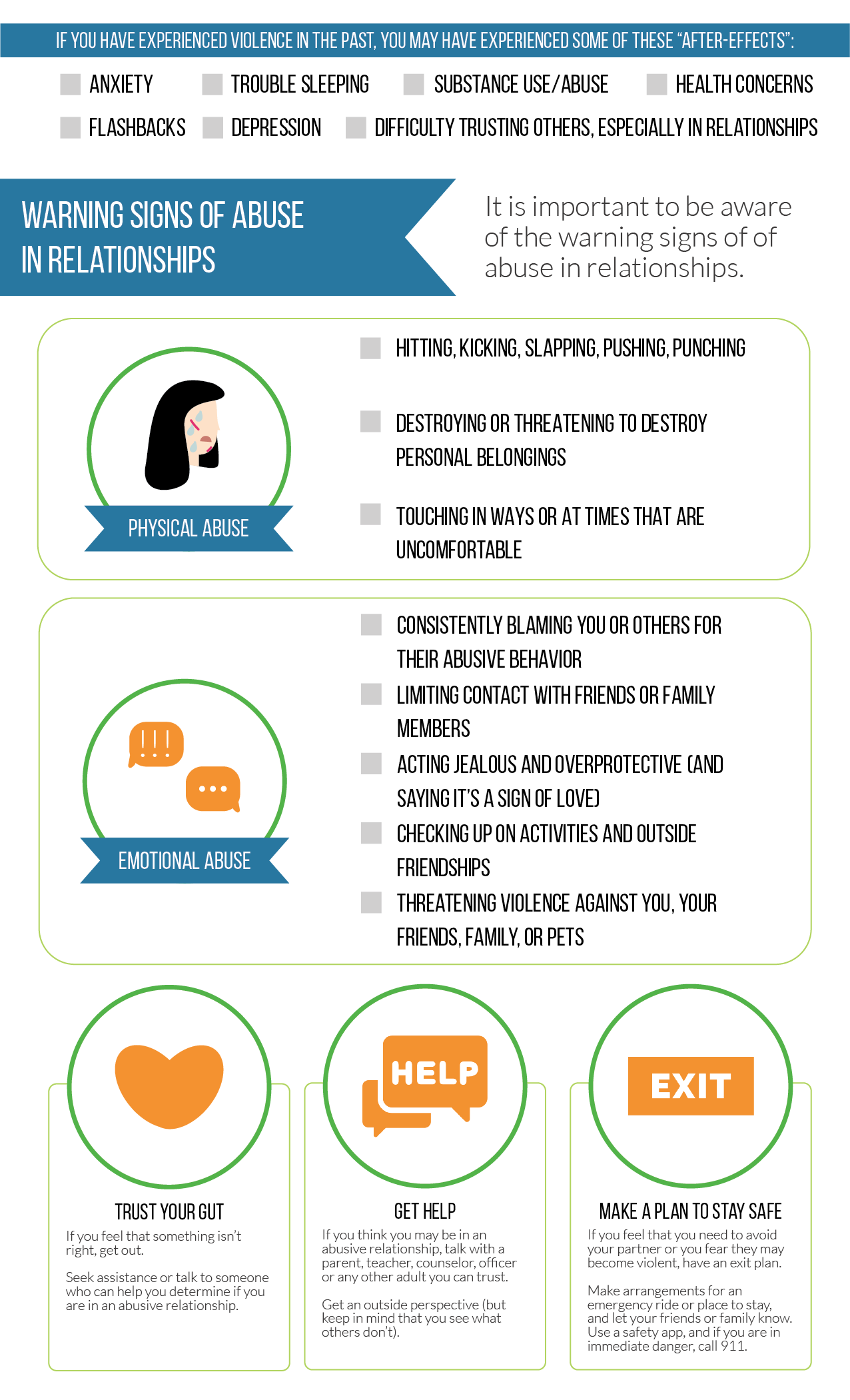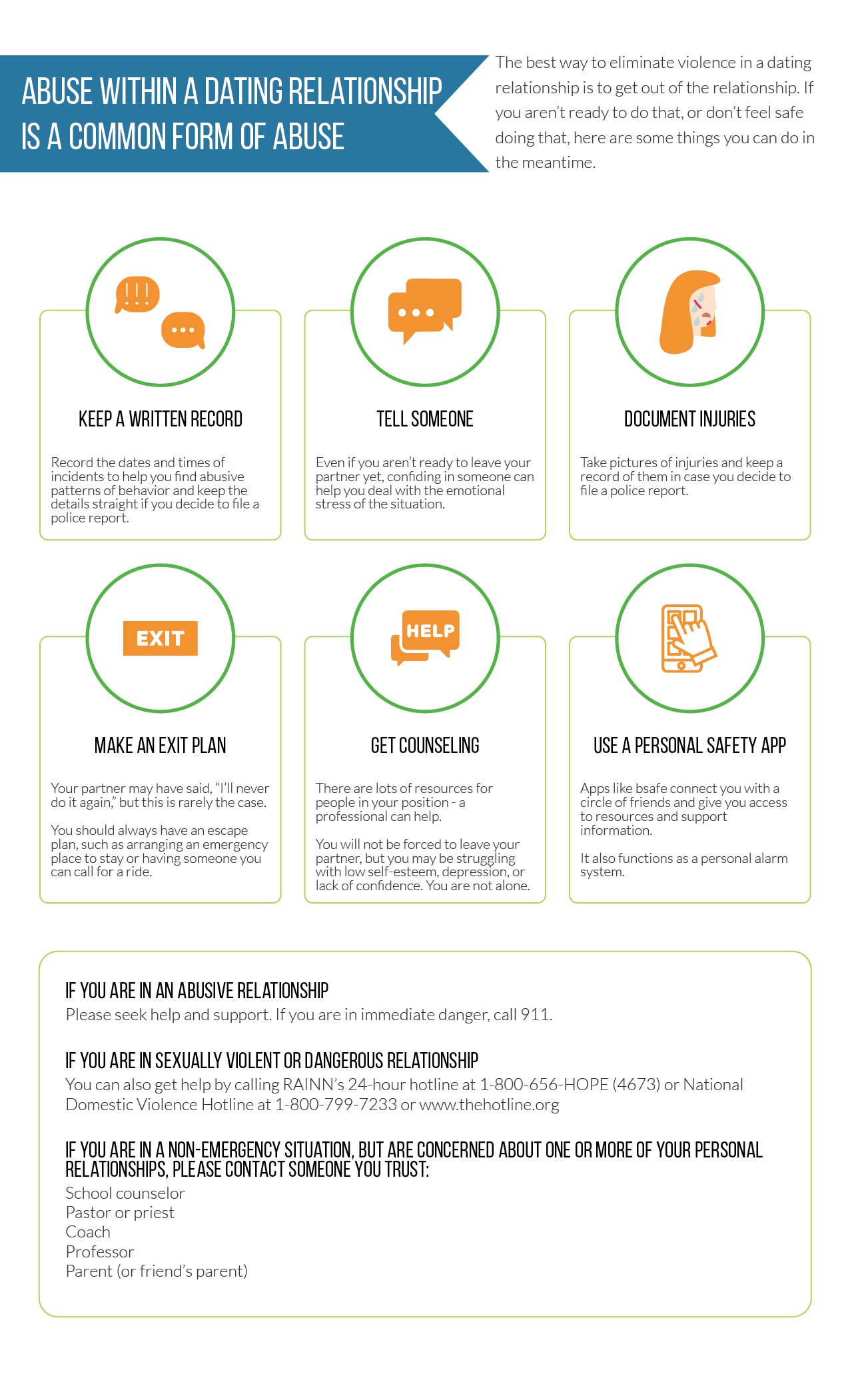Results
Results: "No"
If you answered “NO” to all of these questions, you are not in an abusive relationship. Even so, it is important to be aware of the warning signs of abusive relationships.

Warning signs of physical abuse:
- Hitting, kicking, slapping, pushing, punching
- Destroying or threatening to destroy personal belongings
- Touching in ways or at times that are uncomfortable
Warning signs of emotional abuse:
- Consistently blaming you or others for abusive behavior
- Limiting contact with friends or family members
- Acting jealous and overprotective (and saying it’s a sign of love)
- Checking up on activities and outside friendships
- Threatening violence on you, your friends, family or pets
- Trying to humiliate or put you down
Trust your gut
If you feel that something isn’t right, get out. Seek assistance or talk to someone who can help you determine if you are in an abusive relationship.
Get help
If you think you may be in an abusive relationship, talk with a parent, teacher, counselor, officer or any other adult you can trust. Get an outside perspective (but keep in mind that you see what others don’t).
Make a plan to stay safe
If you feel that you need to avoid your partner or you fear they may become violent, have an exit plan. Make arrangements for an emergency ride or place to stay, and let your friends or family know. Use a safety app, and if you are in immediate danger, call 911.
Results: "In the Past"

Some of your answers indicated that you have experienced some violence in the past. Depending on the type and level of violence that you’ve experienced, you may have experienced some of these “after-effects”: anxiety, depression, difficulty trusting others (especially in relationships), flashbacks, trouble sleeping, substance use/abuse, and health concerns.
If you are concerned about any of these areas, please seek help and support. It is also important to be aware of the warning signs of abusive relationships.
Know the warning signs of physical abuse:
- Hitting, kicking, slapping, pushing, punching
- Destroying or threatening to destroy personal belongings
- Touching in ways or at times that are uncomfortable
Know the warning signs of emotional abuse:
- Consistently blaming you or others for abusive behavior
- Limiting contact with friends or family members
- Acting jealous and overprotective (and saying it’s a sign of love)
- Checking up on activities and outside friendships
- Threatening violence on you, your friends, family or pets
- Trying to humiliate or put you down
Trust your gut
If you feel that something isn’t right, get out. Seek assistance or talk to someone who can help you determine if you are in an abusive relationship.
Get help
If you think you may be in an abusive relationship, talk with a parent, teacher, counselor, officer or any other adult you can trust. Get an outside perspective (but keep in mind that you see what others don’t).
Make a plan to stay safe
If you feel that you need to avoid your partner or you fear they may become violent, have an exit plan. Make arrangements for an emergency ride or place to stay, and let your friends or family know. Use a safety app, and if you are in immediate danger, call 911.
Results: "Yes"

If you answered yes to any of these questions, you may be in an abusive relationship. Please seek help and support. Remember, you are not alone. If you are in immediate danger, call 911. If you are in sexually violent or dangerous relationship, you can also get help by calling RAINN’s 24-hour hotline at 1-800-656-HOPE (4673) or National Domestic Violence Hotline at 1-800-799-7233 or www.thehotline.org
If you are in a non-emergency situation, but are concerned about one or more of your personal relationships, please contact someone you trust: school counselor, pastor or priest, coach, professor, or parent (or friend’s parent).
Abuse within a dating relationship is a common form of abuse. The best way to eliminate violence in a dating relationship is to get out of the relationship. If you aren’t ready to do that, here are some things you can do in the meantime.
Keep a written record
Record the dates and times of incidents to help you find abusive patterns of behavior and keep the details straight if you decide to file a police report.
Tell someone
Even if you aren’t ready to leave your partner yet, confiding in someone can help you deal with the emotional stress of the situation.
Document Injuries
Take pictures of injuries and keep a record of them in case you decide to file a police report.
Make an exit plan
Your partner may have said, “I’ll never do it again,” but this is rarely the case. You should always have an escape plan, such as arranging an emergency place to stay or having someone you can call for a ride.
Get counseling
There are lots of resources for people in your position - a professional can help. You will not be forced to leave your partner, but you may be struggling with self-esteem, depression, or lack of confidence. You are not alone.
Use a personal safety app
Apps like bsafe connect you with a circle of friends and give you access to resources and support information. It also functions as a personal alarm system.